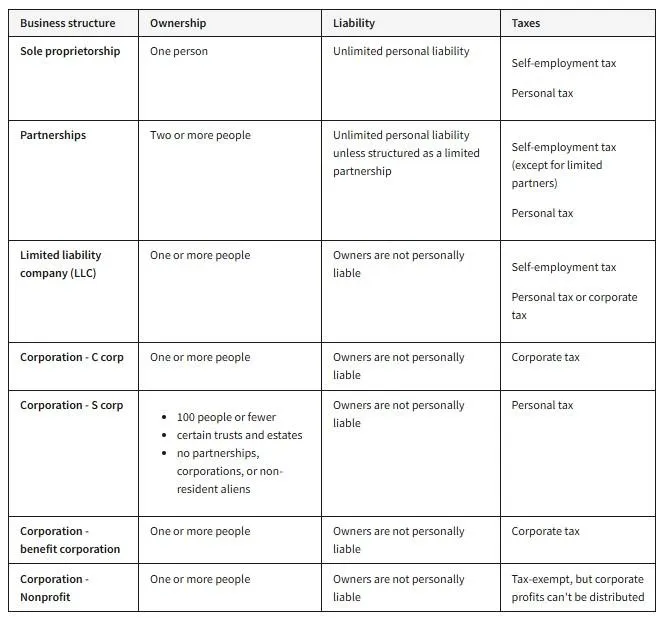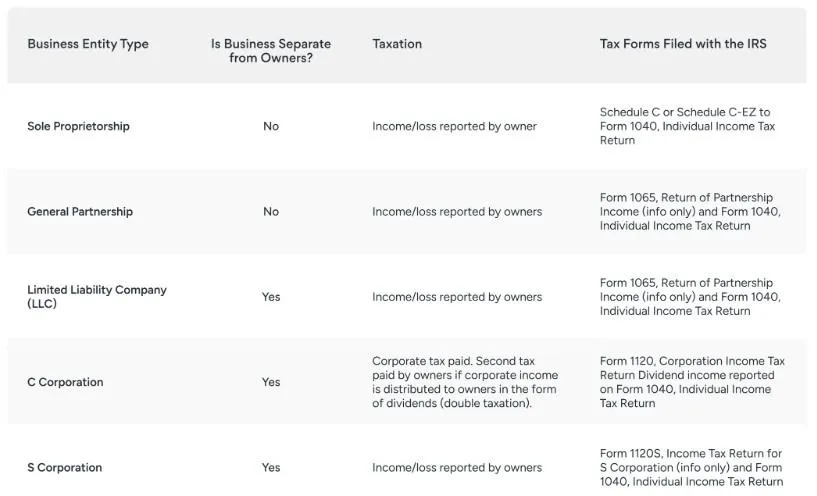
Editorial Disclaimer
This content is published for general information and editorial purposes only. It does not constitute financial, investment, or legal advice, nor should it be relied upon as such. Any mention of companies, platforms, or services does not imply endorsement or recommendation. We are not affiliated with, nor do we accept responsibility for, any third-party entities referenced. Financial markets and company circumstances can change rapidly. Readers should perform their own independent research and seek professional advice before making any financial or investment decisions.
Every entrepreneur dreams of building a business that thrives, grows steadily, and delivers lasting success. But before you can make this dream a reality, you need to build a strong foundation — your business structure.
You must figure out how to choose a business structure that ensures long-term growth. This structure influences everything from how easily you can scale to how you pay taxes.
In this post, I'll show you how to choose the right business structure so you can venture ahead confidently.
As much as choosing the right business is important, so is picking the right structure. This aspect of your business determines:
As you can see, learning how to choose the right business structure influences important aspects of your business.
Now that you know the why, it's time to learn how to choose the right business structure to achieve long-term growth. Let's jump right in.
Besides making crazy profits, most entrepreneurs hope that their business will make it big. That's why understanding how to choose the right business structure for long-term growth matters.
Sole proprietorships and partnerships might be easier to set up but might not be a good fit when you're ready to expand. On the other hand, corporations offer some more room to grow but come with extra buttons and zippers.
According to the GovDocFiling, LLCs offer just enough flexibility without the corporate bulk, and business owners can register their business in this structure free of cost with the right procedure.
Here’s a comparison table of various business structures as outlined by the US Small Business Administration:

Image via Small Business Administration
According to Attrock, online businesses aren't any different. Once you learn how to create one, you can decide what type of structure you want to operate it in to facilitate long-term growth.
Taxes might not be glamorous, but neither is cutting a huge check of your hard-earned profits to Uncle Sam. Your business structure dramatically affects how much you keep and how much goes to the IRS.
For instance, an LLC has pass-through taxation. While C Corporations face corporate taxes, they can also provide tax-saving opportunities if you reinvest the earnings. On the other hand, sole proprietors pay self-employment tax on every dollar they make.
Here's a more detailed guide on tax obligations for various business structures.

Moreover, the tax code changes often. You might find that what worked during the startup phase becomes less optimal as revenue increases. That's why smart business owners review their structures regularly and consult with tax professionals for guided decision-making.
Look, nobody starts a business planning to get sued. But when it happens, it could put everything you own in danger if you lack the proper legal safety net.
The right business structure can be your lifeline in this case.
If you're operating a sole proprietorship or partnership, your personal assets can be used to settle business debts. Meanwhile, LLCs and corporations create a legal wall between your business and personal life.
So, if things go south, only the business assets are at risk. You can rest easy knowing that your personal assets are protected.
Part of learning how to choose the right business structure is understanding that each structure demands different levels of financial rigor.
If you're a sole proprietor or a general partner, you can manage finances with simple bookkeeping. However, as your business grows, so does the accounting needs. In this case, you can hire a bookkeeper to keep your finances organised and accurate.
On the other hand, LLCs and corporations require more rigorous financial and accounting obligations, such as maintaining separate business accounts, formal financial statements, and compliance with tax regulations.
Your business structure will determine the complexity of your finances and record-keeping needs. Choosing the right one ensures you can meet these obligations as your business grows.
You may wonder why naming and branding are part of learning how to choose the right business structure. Well, your brand name is often the first thing your customers notice about your business, influencing their first impression, emotions, and trust in your brand.
However, business structures have varying naming restrictions that can affect how you name your brand.
Meanwhile, LLCs and corporations must register state-compliant names, often requiring special designations like "LLC" or "Inc." in their business names.
The right business structure keeps your business name aligned with your long-term vision without unnecessary legal hurdles.
Your business structure directly determines who calls the shots and how much power you keep. If you get this wrong, you could lose control of your business.
While sole proprietorships give you full control, you’ll have to take on all the work and risk. Partnerships split control, but this can often be a recipe for conflict. On the other hand, LLCs customise control through operating agreements, while corporations force you to answer to shareholders and boards, especially for publicly traded companies.
One bitter pill to swallow is that once you give up control, it's extremely hard to regain it.
That's why you must decide upfront:
In business, some decisions seem complicated now but have massive payoffs later. Learning how to choose the right business structure is one of the most crucial decisions you have to make. Get it right, and it will be easier for your business to scale without going through legal headaches every step of the way.